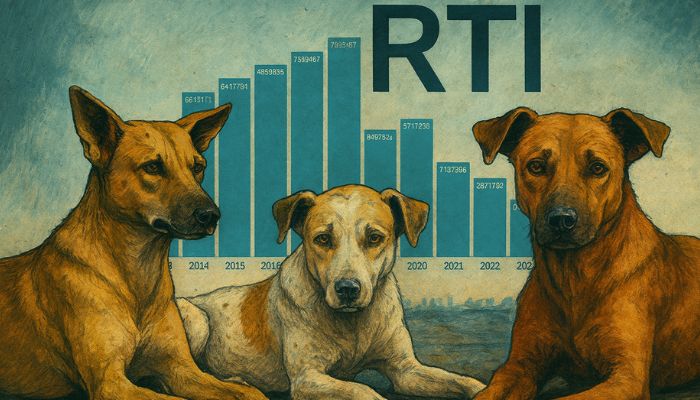
For most of my adult life, I ended my evenings curled up in pajamas with my favorite men: Stephen Colbert, Seth Meyers, the Jo(h)ns (Oliver and Stewart) and Trevor Noah. They were witty, indignant and knew just how to stroke my outrage while making me laugh. They gave my day closure — a safe feeling that someone principled was paying attention to what was going on in our country.
Meanwhile, my actual husband was usually just one room over, watching his own shows on his own device. Our decompression happened in parallel worlds after long days of work and high-stakes negotiations with our children over exactly how many more minutes of screen time they could have. We then fell asleep in separate states of overstimulated exhaustion, each lit by the blue glow of our respective screens.
I was a news junkie. I read headlines while brushing my teeth. Listened to podcasts while driving our kids to piano lessons. Spent my time poring over The New York Times, The Economist, The Washington Post, the Los Angeles Times and NPR instead of grading student projects or answering work emails. It wasn’t just procrastination; it was pleasure. Even when the content was bleak, the commentary was delicious — especially when coated in satire.
Advertisement
But then came January 2025 — the start of Donald Trump’s second presidency — and the fun was gone.
It turns out irony can’t save an autocratic stew of misinformation and hopelessness. Not even the best comics transform the dismantling of public health, the criminalization of immigration or the erosion of democratic institutions into wholesome, witty punchlines anymore. It stopped being entertainment. It started feeling like trauma bonding. Or maybe just trauma.
That’s when I noticed something strange: I no longer wanted to watch the news at night. Or read it online. Or laugh at it. I didn’t want a clever monologue or a scathing segment. I just wanted to be still.
In that stillness, I started doing something I hadn’t done in a while: I climbed into bed. With my husband. Who, as it turns out, had been right there all along.
Advertisement
One night, as I lay there with my beach read, my nightgown rode up just enough to show a peek of my underwear. They were comfortable, full-coverage briefs — maybe dark gray? Think Target, not Victoria’s Secret.
“Are you trying to seduce me?” he asked.
I looked back and thought: That’s a brilliant idea. So I leaned in and straddled him. It was sex before we put in our mouth guards. We were fully awake.
Afterward, he kissed me and said, “You have a 100% track record in seducing me.”
I hadn’t really ever thought about it that way, but l wanted to see where this could go. Because the thing about lying next to someone you’ve been married to for over 16 years is that your bodies remember things your brains may have deprioritized. Like desire.
Advertisement
We’re in our 40s. We have two kids. Our bedtime routine used to involve cajoling those kids to stay in bed, then cursing in the dark after slipping on a manga book (sorry Los Angeles Public Library!). For a while, sex was just one more thing to schedule — “Honey, check the Google Calendar” — except we had to get naked and it wasn’t covered by insurance.
But now, with kids who mostly put themselves to bed and our attention no longer hijacked by the details of democracy’s demise, we suddenly found ourselves with time. And privacy. And proximity.
And, somewhat unexpectedly, more sex.
Like … a lot more. Spontaneous, joyful, make-each-other-laugh kind of sex. “I hope the kids are really asleep” sex. “Double orgasm on a school night” sex.
Advertisement
However, my husband and I didn’t just stumble into this midlife renaissance. Our story is a long — and in many ways — quiet one.
We waited until marriage to have sex. This was mostly for religious reasons (we’re politically liberal evangelical Christians — we exist!), and because we both believed sex was special — so special it should be done and developed with a special person.
Advertisement
At the beginning, it was thrilling — less because we were good at it (we definitely weren’t) and more because we were having sex at all. Then, gradually, we got better. We got to know each other’s bodies the way you learn to drive around your town: a few awkward turns at first, then smooth and intuitive ones.
Then we had kids, which, as many people know, is the great erotic buzzkill of adulthood. Still, we kept going. Not constantly. Not creatively. But consistently enough to know we still wanted each other.
Over the last decade, something else shifted. My husband stopped watching porn. It was a personal choice, rooted in his desire to honor God by honoring our marriage. I didn’t ask him to, but I noticed when he did, and it changed the texture of our intimacy. He saw me differently. I was the only source of any of that energy. He really looked when I changed clothes and forced himself to peel open his eyes when I got up early, just to say, “I wanted to catch my favorite show.” He was giving all his attention to me.
Advertisement
I didn’t fully realize how much I’d been giving mine to the news.
It’s funny how easy it is to split a life into separate screens. Kids on iPads. Parents on laptops. Couples drifting apart, not through malice or neglect, but through thousands of tiny, unintentional choices to disengage from the room they’re in.
As a cognitive scientist, I think a lot about joint attention: the ability to share focus on something with someone else.
Consider the moon landing. People all over the world (including my mother, as a child in South Korea) gathered around the one television set in the neighborhood to watch a single, shared moment unfold in breathless anticipation.
Advertisement
Now, our attention is rarely attuned to the same thing in the same way. It’s fractured. Even though it sometimes feels like we’re all having the same experience (almost everyone has a cousin who posts weird conspiracy theories on Facebook), our attention is profoundly splintered. Each of us is served a uniquely personalized stream of content. No two “For You” pages are exactly the same. We’re never concentrating on the same thing at the same time.
Case in point: The looming end of Stephen Colbert’s “Late Show.” The official CBS line is that it’s a financial decision. Some think it’s kiss-the-ring appeasement to Trump’s FCC. Others say he just wasn’t funny anymore (hold my earrings, I’ll go after those bastards for you, Stephen!). I believe it’s something else: a casualty of the fragmentation of attention.
Late night hosts distill the chaos of the day into cathartic jokes couched in a single, shared narrative. But that only works when we have the same basic facts — if we’re living in the same version of reality. When that disappears, the jokes stop landing. The shared relief vanishes. The power is gone.
Advertisement
For us, the fractured feeds, personalized timelines and misaligned realities weren’t just happening out there. The call was coming from inside our house. We’d become two people living parallel lives, each tuned to our own algorithm on our own devices. Until suddenly, we weren’t.
Trump, in all his chaos, broke my nightly news habit. I could not bear to see or hear him before going to sleep at night. And by doing that, he broke something else open: the part of me that had been longing — not for information, but for joint attention. The rare, beautiful state of truly focusing on something together. Being in sync. Connection.
And there, on the other side of all the noise, was my husband.
Advertisement
I don’t want to oversell this. Our marriage still has its share of fights, off nights and logistical hellscapes of kid drop-offs and forgotten laundry that never made it into the dryer and now smells like mildew.
I care about the world, so I still read the news. But I read it on paper, where I can’t get sucked into an endless pit of doom. I read the articles about unraveling constitutional rights and the AI existential crises in linear order. I let it inform how I understand the world, how I want to react and what I want to fight for. And then, I fold it up, put it down and climb into bed … where my husband and I are, once again, lovers.
None of this is because we’ve become younger or more flexible or started having tantric sex (though never say never). It’s because we’ve come to see each other again — not through the fog of exhaustion or distraction, but through the clarity of shared attention.
Advertisement
At a time when so much of the world feels atomized (politically, socially, even spiritually), we’ve found a kind of unity. It’s not the political kind, it’s an under-the-covers kind.
There’s a reason why authoritarian regimes hate intimacy (see “1984”). Real intimacy is inefficient. It can’t be monetized or propagandized. It requires awkwardness. Vulnerability. Mutual surrender. And that inefficiency — the fact that we aren’t algorithmically optimized for one another — isn’t a flaw of being human. It’s the whole point.
If we can harness that intimacy, we can draw on it for the long fight ahead. The struggle against injustice and institutional erosion will demand energy, clarity and hope. The kind of stamina required to do the often hopeless-feeling work of restoring dignity and rightness can’t come from rage alone. It has to come from something life-giving. This isn’t about tuning out. It’s about rediscovering what makes us lovably human and using that to stay tender, stay grounded and stay in the fight.
Advertisement
So yes, I blame Trump. I blame him for what he is doing to our country and the hurt he is causing countless people. I blame him for driving me off my beloved news-ish shows (sorry, Stephen!) and into the arms of my husband. I blame him for making the news too unbearable to binge and, in doing so, giving me back my evenings. I blame him for reminding me, through pure existential dread, that I don’t want to spend my nights rage-reading about our collapsing institutions. I want to spend them tangled up with someone I love. And I want that love to sustain me, to feed my fire and to remind me why I need to keep making good trouble.
20 Years OfFreeJournalism
Your SupportFuelsOur Mission
Your SupportFuelsOur Mission
For two decades, HuffPost has been fearless, unflinching, and relentless in pursuit of the truth. Support our mission to keep us around for the next 20 — we can’t do this without you.
We remain committed to providing you with the unflinching, fact-based journalism everyone deserves.
Thank you again for your support along the way. We’re truly grateful for readers like you! Your initial support helped get us here and bolstered our newsroom, which kept us strong during uncertain times. Now as we continue, we need your help more than ever. We hope you will join us once again.
We remain committed to providing you with the unflinching, fact-based journalism everyone deserves.
Thank you again for your support along the way. We’re truly grateful for readers like you! Your initial support helped get us here and bolstered our newsroom, which kept us strong during uncertain times. Now as we continue, we need your help more than ever. We hope you will join us once again.
Support HuffPost
Already contributed? Log in to hide these messages.
President Trump has been a disaster for democracy. But he’s been unexpectedly excellent for my sex life.
J. Y. Kitani is a cognitive scientist and professor in Los Angeles. She studies how the modern world shapes how we think and how we might wrest back a bit of that control, at least for part of the day.
Advertisement
Do you have a compelling personal story you’d like to see published on HuffPost? Find out what we’re looking for here and send us a pitch at pitch@huffpost.com.



